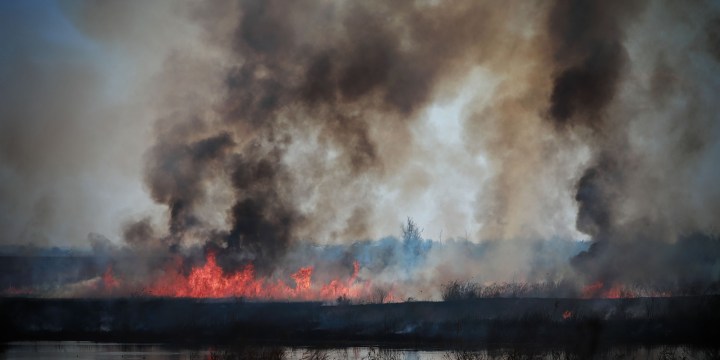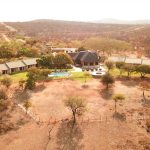CLIMATE CRISIS
Severe droughts and veld fires set up conditions for food price increases

Parts of South Africa’s agricultural production areas are severely affected by climate crisis-related droughts and veld fires. Agri South Africa says that if the situation remains the same, food prices will go up and jobs will be lost.
The agricultural sector is vulnerable to climate change as higher temperatures reduce yields of desirable crops, and changes in precipitation patterns increase the likelihood of short-run crop failures and long-run production declines.
The reductions in agricultural productivity or sudden losses of crops are likely to have ripple effects which include increased food prices and food insecurity.
Agri SA chief economist Kulani Siweya said drought and veld fires could have a negative impact on food prices, particularly in areas of high production.
“We have seen prices remain elevated for the most part since late 2020, but this was mainly driven by international prices and external factors. Should the situation remain in key production areas, we will find ourselves experiencing a continued uptick on food inflation,” he said.
He said this was also concerning for the sector’s financial standing, due to losses that could easily run into the millions.
“There are parts of the country that have been experiencing drought conditions for eight years now and some farmers have expressed that they literally have nothing left and will take a lot to recover. The sector has also only somewhat recovered from the drought experienced a few years ago.”
Veld fires have burnt more than two million hectares in the Free State, North West, Northern Cape and Eastern Cape this year alone. The worst-hit province is North West, where 700,000 hectares burned from 1 May to 6 October.
Eric Stoch, chairperson of North West Umbrella Fire Protection Association, said the 700,000 burnt hectares equate to almost 7% of the total surface area of North West and about 14% of its agricultural land.
“It is estimated rather conservatively that the cost to the North West economy is now well over R4-billion. The spinoff effects and hidden costs to the environment, job losses and escalation in food prices and the costs of combating the fires are not yet taken into consideration,” he said.
Andrea Campher, Agri SA risk and disaster manager, said: “Now we are sitting with close to two million hectares that have been lost due to the fires in various provinces like the North West, Northern Cape and the Free State. What worsens the matter is that 50% of the Northern Cape is basically under drought conditions and the other 50% of the province that had good rains earlier this year is now suffering from veld fires that destroyed all the good pastures they had.”
Campher said climate change had an impact on the severity of the fires.
“The impact that these disasters will have on the rural economy is not yet established, but I think this will have a big impact on the sustainability of rural communities that are dependent on agriculture to survive.”
She said South Africa was still food secure, but: “What might happen is that jobs might be lost, which means that households will start facing food insecurities because they don’t have money to buy food.”
Campher said farmers might face another disaster this year as the locust season is coming.
“We foresee good rains this year, which is going to mean pests and disease outbreaks. It is really important for government, in cooperation with the farmers’ unions on ground level, to make sure that these pests, especially locusts, are well controlled so that we don’t threaten more crops now that our grazing fields have been burnt down,” she said. DM/OBP





















 Become an Insider
Become an Insider
Comments - Please login in order to comment.